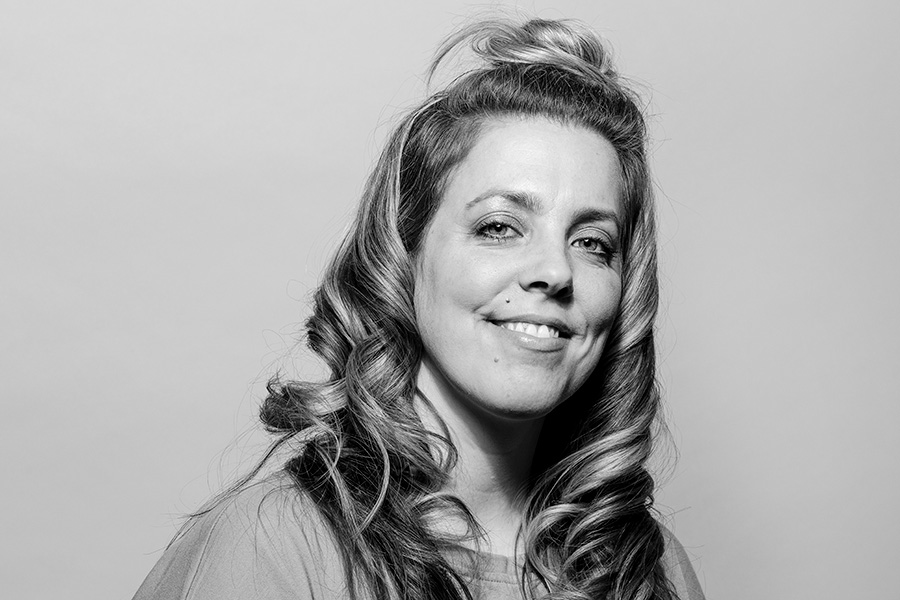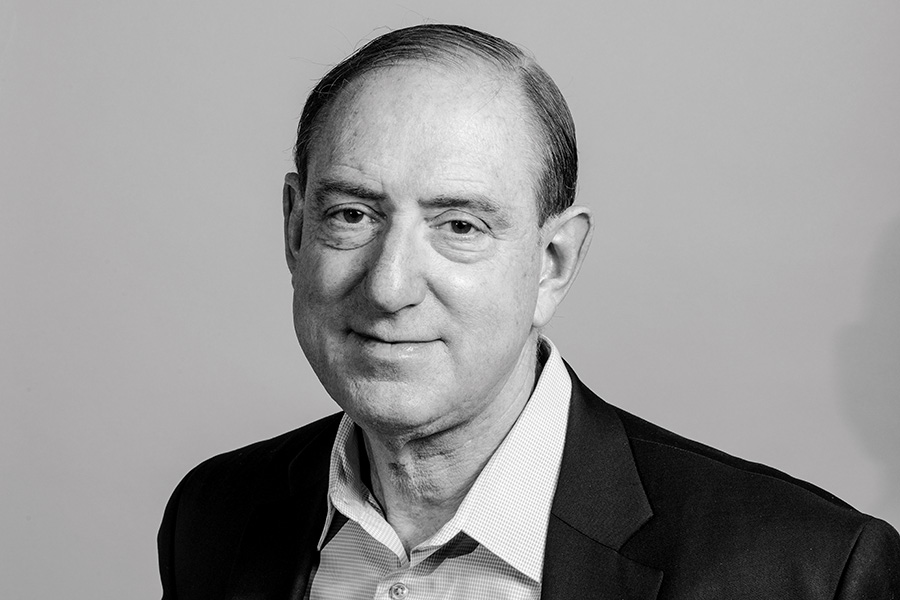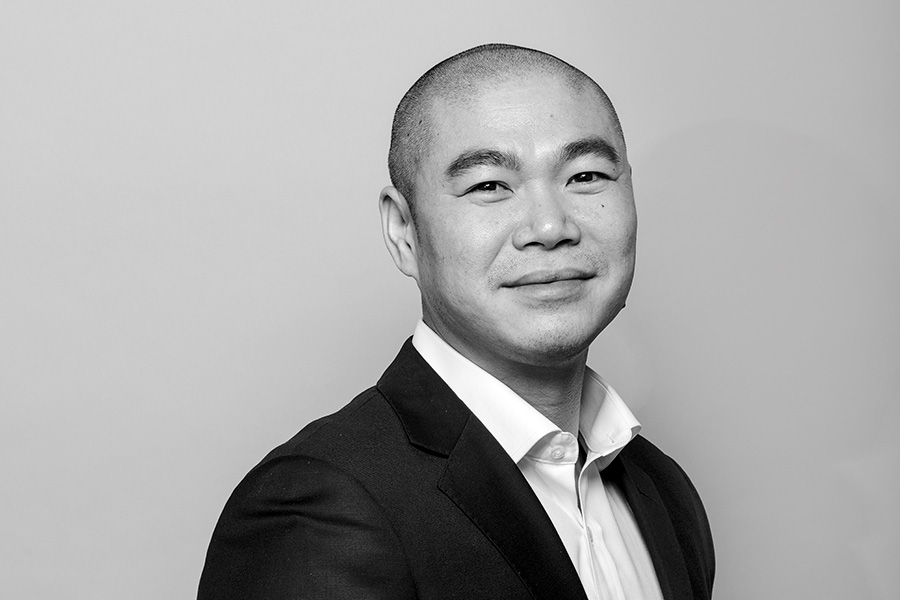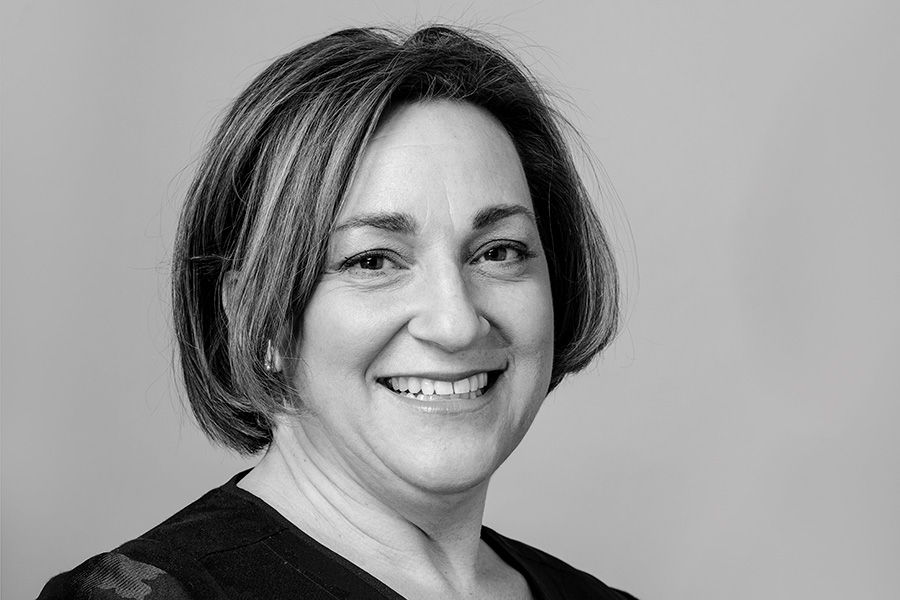These 4 Place-Makers Are Transforming Boston’s Suburbs
From a local indie clothing store in Hudson to a brand new 320-unit apartment building in Malden, these four innovators are revitalizing Massachusetts' cities for a new generation of home-buyers.

Photo by Toan Trinh
Amy Chase
Owner, the Haberdash
Conventional wisdom is that suburban dwellers would rather hop in their Subaru and head for the nearest superstore than hoof it to a handful of specialty shops to find what they’re looking for. But Amy Chase doesn’t care much about conventional wisdom. Her 850-square-foot gift shop in Hudson, the Haberdash, is helping usher in a new era for the once-downtrodden mill town—one filled with trendy indie retail you won’t find anywhere else. “I think small businesses are what make each town and city unique,” the 38-year-old entrepreneur explains. “I love that our stores can play a role in that, and I also love to introduce customers to products that support small-batch makers…not huge corporations.”
Like many millennials, Chase didn’t start out in the suburbs. She first developed a following in Boston selling boho sundresses and other vintage clothing out of a retro trailer, then expanded her unique brand with the opening of Worcester’s Crompton Collective, a curated antiques/craft market, in 2012. The venture was so successful that she followed it up with the Haberdash five years later. Destination: Hudson. “It was the most charming downtown I’d ever seen,” she says. “And when I saw my storefront on Main Street, with such a good view, tin ceilings, and its old wooden door, I knew this was it.”
By all accounts, business is booming at the boutique, which peddles organic skin-care lines, jewelry, stationery, and more. “We have customers from Connecticut…older ladies, fashionable girls from Boston who come to see the town when apple-picking,” says Chase, who last month expanded her empire yet again with the opening of a clothing-focused Haberdash in Worcester. But the heart and soul of her business is the local support, both from shoppers swooping in for last-minute host gifts and from other business owners working hard to breathe new life into Hudson. “When a town gets revitalized, it’s often a grassroots movement by one small business that decides to take a risk,” she says. If Hudson’s thriving Main Street is any indication, that risk is paying off in spades.

Photo by Toan Trinh
Ted Tye
Managing Partner, National Development
The allure of the indoor mall has faded like acid-washed jeans—gone are the days of chilling at the food court and wandering the halls looking for love. Department stores? So over.
What’s in? Al fresco shopping experiences akin to those at MarketStreet Lynnfield, a 70-acre outdoor megaplex that opened in 2013. Besides stores aplenty, it offers residences, dining, a branch of Lahey Health, and a golf course. In other words, it’s a “21st-century town center,” says Ted Tye, whose National Development co-owns the complex with WS Development. “We think of [Lynnfield] as an outdoor living room.”
Millennials and Gen Xers may be increasingly opting out of city life, but that doesn’t mean they’re lowering their standards: These days, Tye says, suburbanites demand the same amenities (and sense of community) as their urban counterparts. That’s why National Development’s strategy centers on launching similar concepts throughout metro Boston’s smaller towns: Its newest projects include University Station in Westwood, an MBTA-adjacent area anchored by Target and Wegmans; and the District Burlington, featuring shops, a hotel, and a restaurant row that includes an outpost of Boston favorite Island Creek Oyster Bar. After all, why fight traffic on 95 when you can enjoy a night on the town right in the neighborhood? “We’re providing reasons for people not to sit home on their laptop,” Tye says.
The job feels like a higher calling for the 30-year building veteran, who grew up in Haverhill and witnessed the urban-renewal project that decimated the historical downtown. “There were all these great old buildings dating to the 19th century—city hall, a movie theater, retail stores—and what was put up in its place was a parking garage,” Tye says. “My desire going forward…is to create places people can relate to and enjoy.”

Photo by Toan Trinh
Jimmy Liang
Founder, CEO, and chef, JP Fuji Group
Once upon a time, says restaurateur Jimmy Liang, Quincy residents had two choices for dinner: pizza or Chinese takeout. Now the city is a dining destination, thanks in part to the decades-long efforts of longtime resident Liang and his business partner, Peter Tse, of the JP Fuji Group.
In 1998, an ambitious 19-year-old Liang launched the first iteration of his sushi restaurant, Fuji, on Hancock Street. “Mine was the first Japanese restaurant in Quincy,” he says. “I still remember when I first met with the head of the health department. She didn’t know what sushi was!” But he wasn’t done yet—not even close. Trendy openings since then have included YoCha (hot dogs and frozen yogurt), B Café (fast-casual sushi and bubble tea), and Shabu (Japanese hot pot), all along Hancock Street, the city’s bustling spine.
Following Liang’s lead, other hip restaurants have made Quincy their home in recent years, including Zef Cicchetti & Raw Bar, a sleek spot for Venetian bites, and the Townshend, the city’s go-to for upscale comfort food. For Liang, though, Quincy’s dining renaissance is especially meaningful. This is where he used to grab a slice at Napoli or apple pie at Woolworth’s as a kid, after all. Today, he often uses his kitchens—particularly at Fuji, now at the West of Chestnut apartments—to cook private meals that raise money for local organizations such as the North Quincy Library and the South Shore YMCA.
It’s a way to give back to a city that welcomed him as a young immigrant from Taishan, China, and supported his many business ventures over the past two decades. Liang still remembers walking into Quincy City Hall as a fresh-faced 18-year-old and requesting a restaurant application to open his original Fuji. “The secretary looked at me and said, ‘Are you doing this for your father?’” Liang says, laughing at the memory. “I said, ‘Oh, no, ma’am. This is for me.’” And, now, for a grateful (and hungry) South Shore.

Photo by Toan Trinh
Sandi Silk
Senior VP and Development Partner, Jefferson Apartment Group
Sick of coughing up $3,000 a month for a mediocre one-bedroom, but not ready to surrender to a center-hall Colonial with a white-picket fence? The next frontier of urban living is here—and it’s not in Boston. Die-hard urbanites are increasingly fleeing to once-overlooked cities with strong downtowns ripe for modernization, from Lowell and Worcester to closer-in Everett.
Starting this spring, they’ll also be flocking to Malden—already a popular destination for young families—when J Malden Center opens at the corner of Pleasant and Commercial streets. The roughly 550,000-square-foot development will feature 320 residential apartments and 22,500 square feet of retail, with a focus on indie local businesses—all within walking distance to the Orange Line. “Malden Center is geared toward the authentic urban experience, an affordable alternative to a downtown building and positioned with amenities that rival what you would find in an urban core, such as the Seaport,” says Sandi Silk, senior vice president and development partner at the Jefferson Apartment Group, which teamed up with the City of Malden for the project. With one big difference from the Seaport: Rents are slated to start at under $2,000 for a one-bedroom unit. The bang for your buck continues with such resort-style extras as a cabana-lined pool and a gaming deck with lifesize chess and tic-tac-toe boards.
So why is Silk putting her money on Malden as the next hot almost-city destination? One word: Somerville. “I’m dating myself, but I got out of college in the early 1990s, and I lived in Somerville because it was cheap, before it was what it is today. I remember what Davis Square looked like, and it reminded me of what Malden is now,” she says. In other words, get in while you still can.
Read more: Top Places to Live 2019


